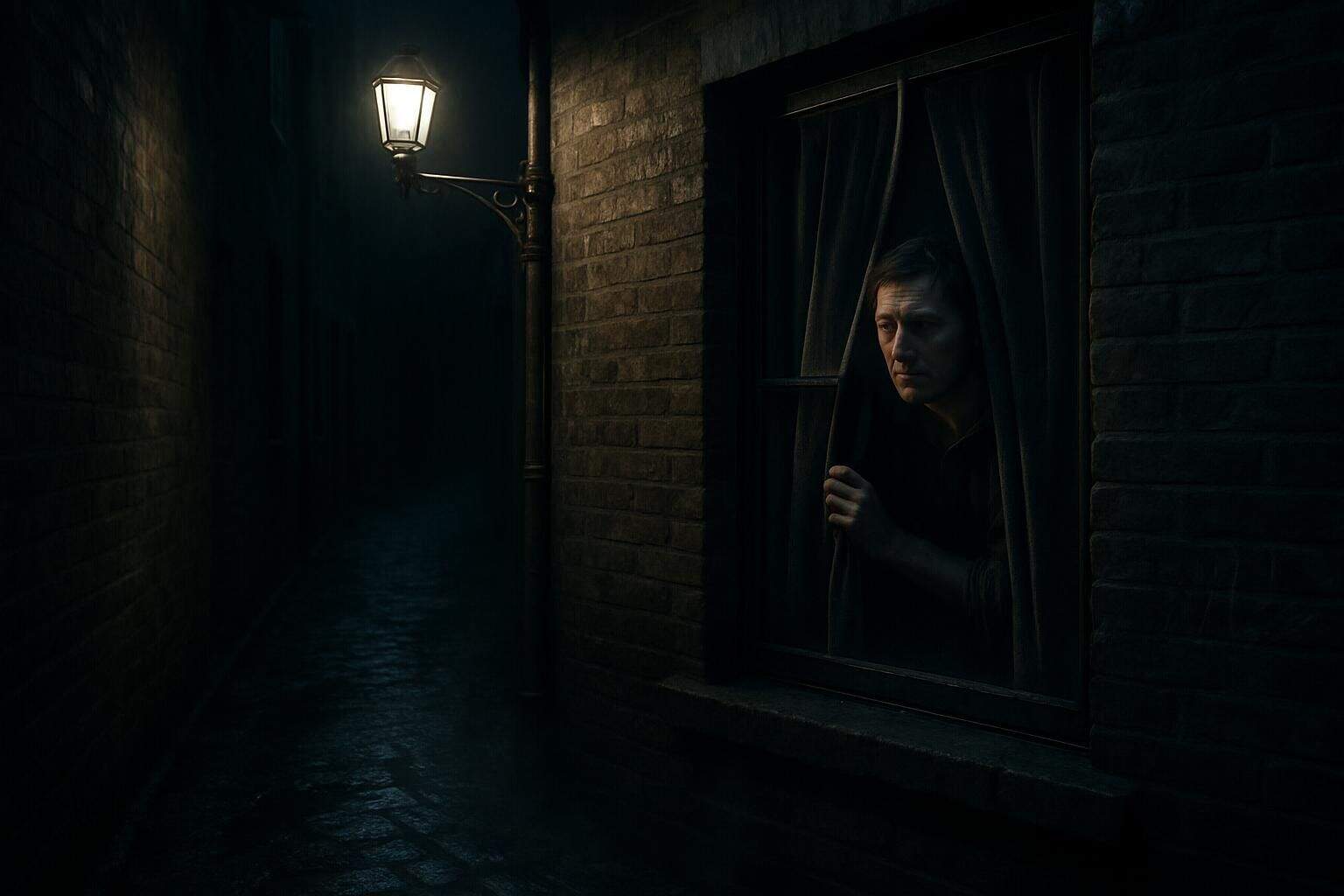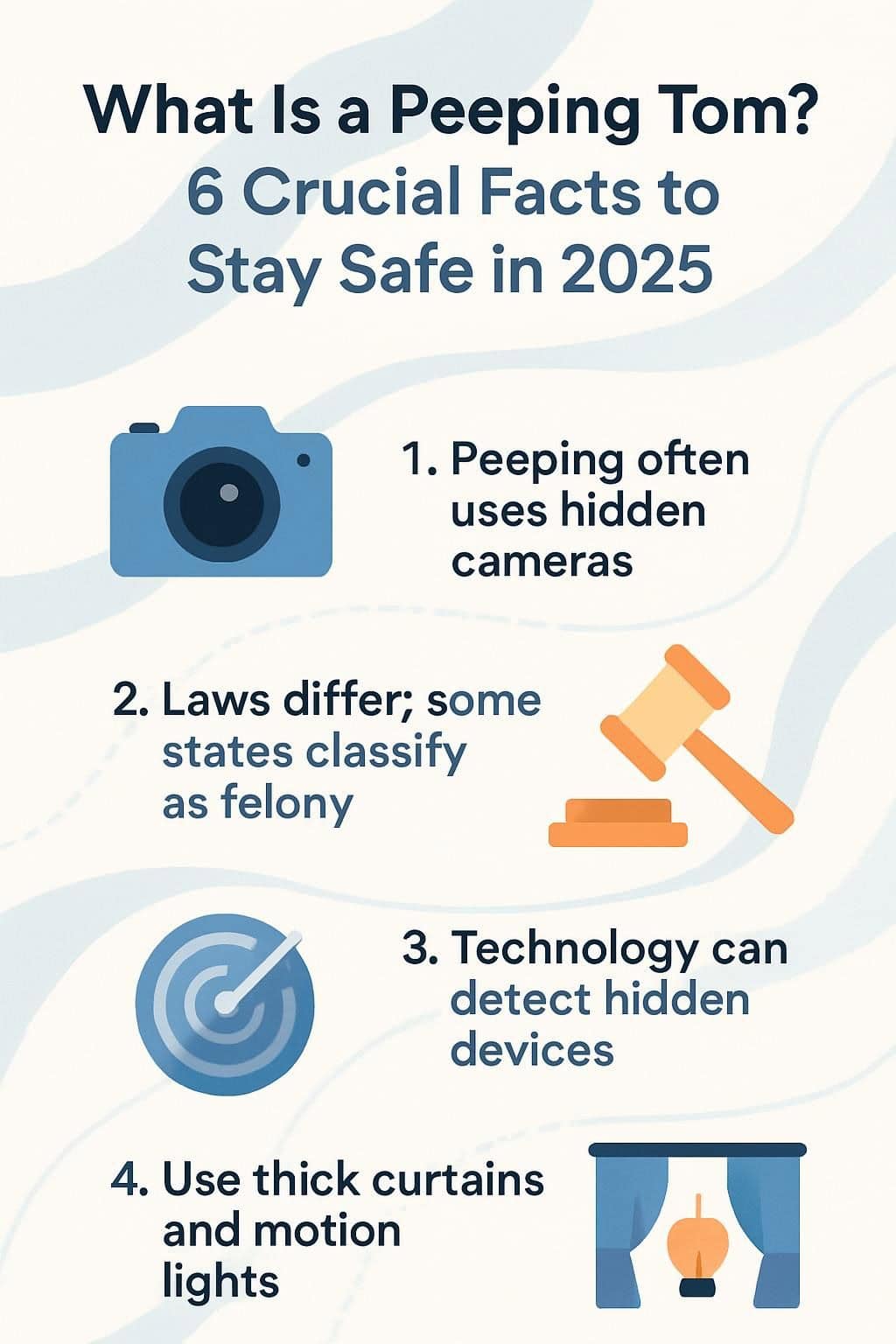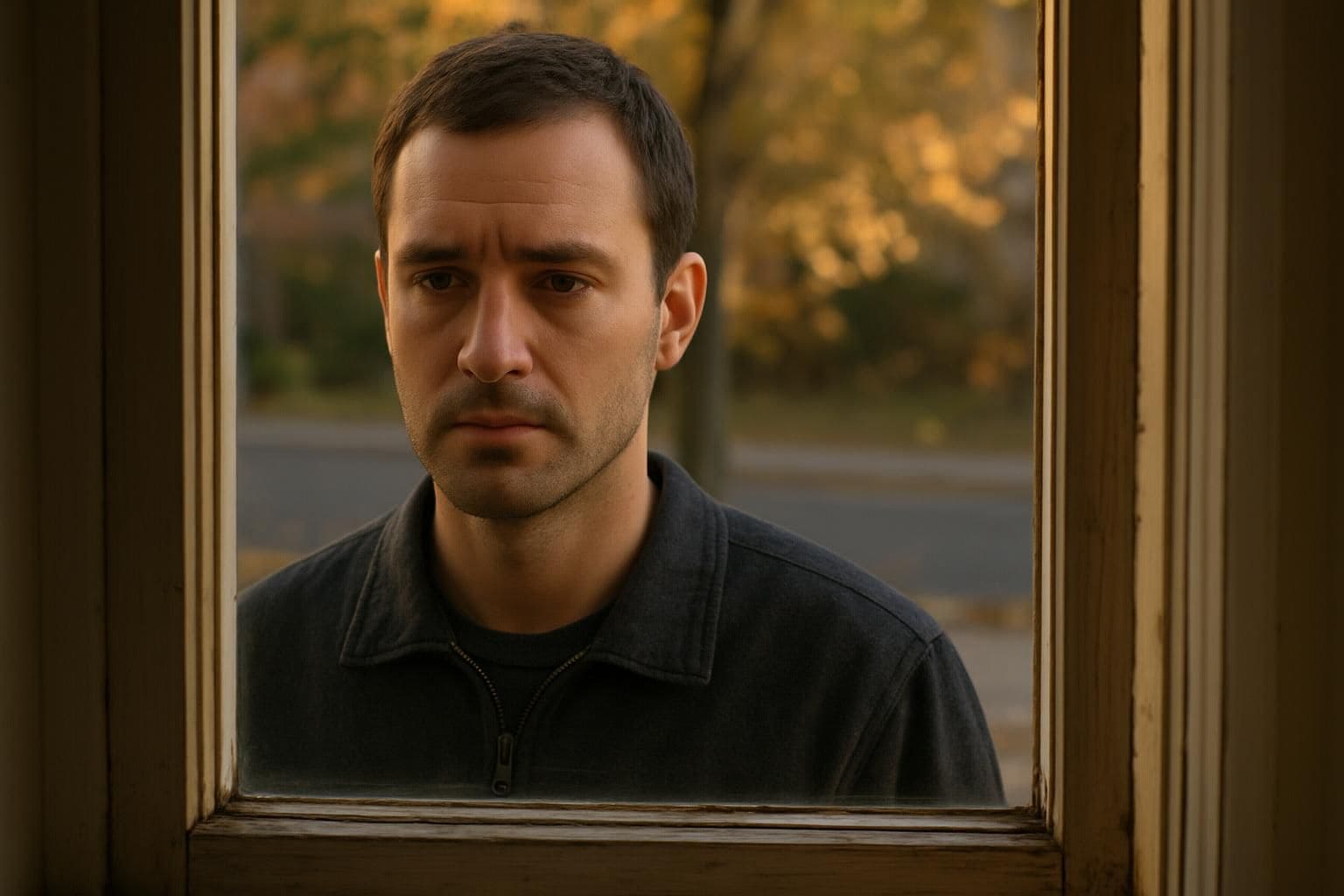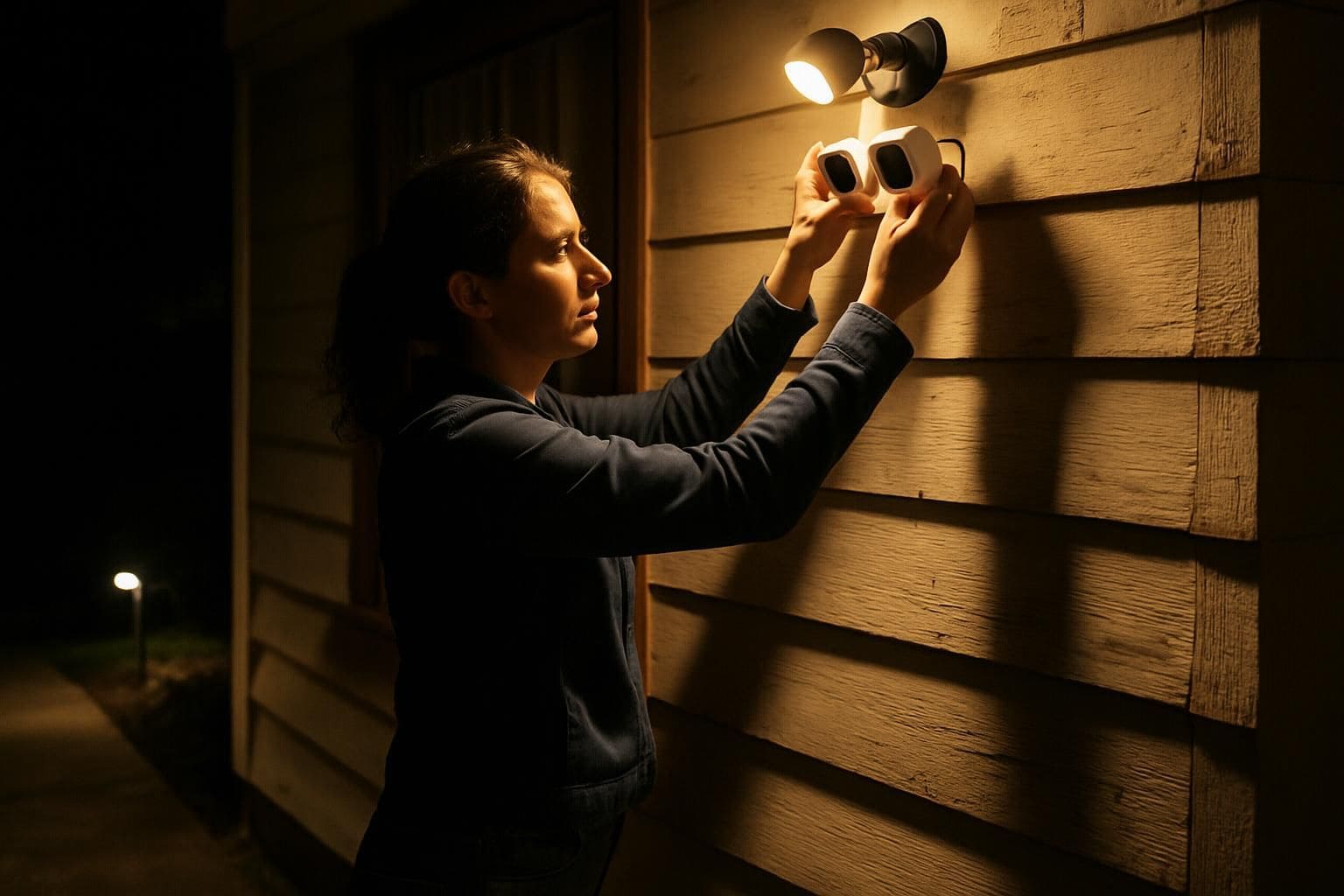Have you ever felt uneasy, thinking someone might be secretly watching through your window at night? The term “Peeping Tom” first came from an old English tale about a man who watched Lady Godiva ride nude in public.
In this post we will clearly explain what is a peeping tom, how to spot signs of their behavior, and easy ways women can protect themselves in 2025. Read on for safety tips everyone should know.
Key Takeaways
A Peeping Tom secretly observes others without their consent—often for sexual reasons—and authorities typically consider this behavior a sex crime.
Today, peeping often involves using tiny hidden cameras in restrooms, hotels, or changing rooms; penalties can include heavy fines, jail time, and mandatory sex offender registration.
Laws vary depending on the state: California treats peeping as a misdemeanor, yet other states view it as a felony offense with harsher penalties.
Smaller devices and affordable technology make secret spying easy, but technology can help you too—with security cameras, alarm systems, and hidden-camera detectors priced under $50.
To stay safe, put up thick curtains, install lights triggered by movement, check changing rooms or hotel rooms for hidden devices, and get familiar with your local voyeurism laws.
Table of Contents
Definition of a Peeping Tom

A Peeping Tom is someone who secretly observes others without their knowledge or consent, usually for sexual gratification. The term originated in 1769, from the legend about Tom, a Coventry tailor, who secretly watched Lady Godiva ride naked through the town.
According to that tale, Tom suffered blindness afterward as a punishment for his spying. Today, courts often classify such voyeuristic acts as sex crimes.
This kind of spying differs greatly from consensual roleplay, like the situations described in our sex roleplay ideas article.
Peeping violates someone’s privacy and breaks laws.
The violation of privacy through voyeurism represents one of the most basic breaches of trust in our society.
Nowadays, this intrusive behavior includes more than peering through windows. Modern technology has added hidden cameras to this problem, creating a crime known as video voyeurism.

Offenders secretly place cameras in private areas to record or watch others without consent. Punishment for this offense can include heavy fines and mandatory registration as a sex offender.
Courts in locations such as Manhattan Beach and Redondo Beach treat these crimes seriously, acknowledging the emotional and psychological harm victims suffer.
Legal Implications of Being a Peeping Tom

Peeping Toms face serious legal trouble across the U.S., with penalties ranging from fines to jail time and sex offender registration. Laws vary by location, so what counts as a misdemeanor in Carson might be a felony in Hermosa Beach, making it crucial to understand local statutes if you need to protect yourself or press charges.
Laws and Penalties
Legal systems take voyeuristic behavior seriously. Laws exist to protect your privacy and personal space from those who would violate them without consent.
| Legal Provision | Description | Penalties |
|---|---|---|
| California Penal Code 647(i) | Prohibits peeking while loitering, prowling, or wandering | First offense: Up to $1,000 fine and/or up to 180 days in county jail |
| California Penal Code 647(j) | Bans non-consensual viewing, filming, or photographing in private areas | Misdemeanor classification |
| Repeat Offenses (CA) | Second or more violations of peeping laws | Up to one year in county jail |
| Secret Recording Law PC 647(j)(3) | Specific prohibition against recording individuals in private spaces | Misdemeanor with up to 6 months in county jail |
Many states have passed similar laws with varying severity of punishment. Next, we’ll explore how these legal definitions and punishments differ across various jurisdictions in the United States.
Differences Across Jurisdictions
Peeping Tom laws vary greatly from state to state and between countries. Legal penalties depend on where the offense happens. Many women have asked me about these differences after experiencing privacy violations themselves.
| Jurisdiction | Key Legal Points | Penalties |
|---|---|---|
| California | Classified as misdemeanors under specific penal codes | No sex offender registration required; possible expungement after probation |
| Federal Law | 18 U.S. Code 1801 criminalizes video voyeurism | Different penalty structure than state laws |
| States with Strict Laws | Some require sex offender registration | Longer jail terms, higher fines |
| States with Lenient Laws | May classify as simple misdemeanors | Lower fines, shorter jail terms |
| Special Circumstances | Cases involving minors | Enhanced penalties in California and most states |
| Repeat Offenders | Multiple violations tracked across jurisdictions | Increased penalties for repeat offenses in California |
Your location matters if you become a victim. Local police once told me they couldn’t pursue a case because the incident happened across state lines. Knowledge of your local laws helps you advocate for yourself if someone violates your privacy.
Psychological Aspects of Peeping Behavior

Voyeurs commonly struggle with deep mental health problems that drive them to spy on others. Psychologists often connect this behavior to feelings of inadequacy or a strong urge to control situations.
For some individuals, watching others secretly becomes a way to replace healthy friendships and interactions they’re unable to form. In many ways, voyeuristic actions resemble other sexual crimes rooted in the desire for power over victims.
The excitement gained from secretly observing others can become addictive—similar to how drugs affect a person’s brain. Generally, victims don’t realize someone is spying on them until it’s discovered, leading to intense anxiety and emotional trauma.
There’s a reason the creepy uncle stereotype appears so often in media—individuals who begin by secretly watching can escalate to more violent crimes without proper intervention and support.
People caught up in this troubling behavior rarely stop by themselves unless they get professional help. To deal with this issue, the criminal justice system often combines punishment with therapy.
Registered sex offenders face strict regulations about housing, employment, and their daily activities. According to the American Heritage dictionary, voyeurism is classified as a mental disorder and not simply poor behavior.
Victims from communities like San Pedro, Harbor City, and Rolling Hills Estates have reported significant emotional harm following privacy breaches. Because voyeurs act secretly, victims often feel unsafe even inside their own homes.
Defense lawyers typically push for plea deals in these situations, but any resolution should aim at justice and preventing future harm.
Modern Technology and Peeping Toms

Tech advances have sadly made spying much simpler lately. Hidden cameras are cheaper, smaller, and easier to hide than ever before—fitting secretly into places like bathrooms, changing rooms, or bedrooms.
Sex offenders commonly misuse these tiny devices to unlawfully invade privacy. In a shocking example, Johns Hopkins Hospital faced backlash after a doctor secretly filmed patients with hidden cameras.
Every year, police report more video voyeurism arrests, especially since these gadgets are now easier to buy.
Digital gadgets also bring new privacy threats to women everywhere. Someone can misuse your smartphone to secretly film through your windows, or record you without permission. Criminals may even install harmful apps that remotely activate cellphone cameras.
Such offenses often result in felony charges and involve discussions with defense attorneys. Protecting yourself involves carefully checking private areas for odd, unfamiliar objects and keeping curtains or blinds fully closed.
Next up, we’ll cover some practical steps you can take to protect your privacy from these hidden threats.
Preventive Measures Against Peeping Toms

Technology can increase privacy risks, but it also provides useful ways to keep peeping Toms away. Here are practical steps to safeguard your home and personal space:
- Set up security cameras around your home to detect unwanted visitors. Many newer systems notify your phone immediately if someone moves near windows or entrances.
- Install thick curtains or sturdy blinds to shield your home’s interior from outside eyes. I realized this after living on a first-floor unit, where people walking by could easily see inside.
- Use outdoor lighting to deter potential voyeurs at night—motion-sensor lights are especially effective, startling trespassers and saving electricity at the same time.
- Coordinate with neighbors and stay alert for any unfamiliar visitors nearby. Organizing a neighborhood watch helps identify people who seem out of place.
- Change clothing privately in bathrooms or windowless rooms to stay out of view. Adopting this habit helps ensure no one outside can watch you.
- Inspect public restrooms, changing areas, and hotel accommodations carefully for hidden cameras. Be alert for unusual openings in walls, strange devices in smoke alarms, or suspicious objects.
- Inform mall security immediately if someone appears to follow you or behaves oddly. Promptly alerting authorities can prevent an unpleasant problem from escalating.
- Familiarize yourself with local voyeurism laws so you know your rights clearly. Each state treats voyeurism differently—ranging from misdemeanors to serious felony sex crimes.
How Will the Issue of Peeping Toms Evolve in 2025?
Tiny hidden cameras will become much more common by 2025. These devices are already hiding in smoke alarms, alarm clocks, and even tiny screws. Last month, I stayed at an Airbnb and noticed a USB charging device that looked unusual—turns out, it had a hidden camera inside.
Easy-to-share videos worsen the harm, as images can rapidly spread across social media and messaging apps. Now folks worry more about privacy in bathrooms, dressing rooms, hotel rooms, and other personal spaces—all due to increasingly accessible spying gadgets.
Thankfully, protection methods are also becoming easier to find. Hidden camera detectors that used to cost hundreds are now available for less than $50 online. Still, we don’t have clear national figures for cases involving hidden-camera voyeurism, which makes it difficult to handle this crime effectively.
Laws differ greatly from state to state—some classify voyeurism as a minor offense, while others label it a serious felony. Victims often don’t report the crime because they feel embarrassed, or they might never even realize someone recorded them.
This creates a big difference between recorded police reports and actual incidents.
People Also Ask
What is a Peeping Tom and is it a sex offense?
A Peeping Tom is someone who secretly watches others, usually for sexual gratification, without permission. Most states classify this behavior as a sex crime, making it legally serious—similar to offenses like sexual assault or statutory rape.
What penalties do Peeping Toms face if caught?
Penalties depend on state laws, but acts of spying on others typically qualify as felonies. Offenders often end up pleading guilty or taking plea deals to lesser charges. Cities like Wilmington and Hawthorne, for example, enforce harsh penalties against privacy violations of this type.
How can I protect myself from Peeping Toms in 2025?
Make your home harder to spy on by installing quality curtains and blinds. Use detector apps to find hidden cameras on your property or inside your house. Placing motion-sensing lights around the outside of your home can also help scare off unwanted visitors lurking nearby.
Is digital peeping considered the same crime as physical peeping?
Yes—state laws today include online spying and digital voyeurism alongside physical acts. Merriam-Webster and various legal authorities confirm that unwanted surveillance, whether digital or physical, falls within similar criminal classifications.
How should I respond if I spot a Peeping Tom?
Immediately call the police and never confront the offender yourself. If possible, safely take pictures or video of the person as evidence. Laws in Indonesia and most other countries also treat this as a serious crime, so these steps generally apply no matter where you are.
References
https://www.lacriminaldefenseattorney.com/legal-dictionary/p/peeping-tom/
https://www.greghillassociates.com/what-is-the-law-about-being-a-peeping-tom-pc-647-i.html
https://www.shouselaw.com/ca/defense/laws/peeping-tom-laws/
https://rollingout.com/2024/09/12/peeping-tom-and-avoid-becoming-a-target/
https://www.choosingtherapy.com/voyeuristic-disorder/ (2021-02-24)
https://www.nbcnews.com/tech/security/tiny-cameras-big-crimes-peeping-toms-go-high-tech-n173151
https://repository.law.uic.edu/jitpl/vol17/iss4/4/
https://www.securitysystemsokc.com/blog/home-security-essentials-4-ways-to-prevent-peeping-toms-in-the-act/ (2022-07-21)
https://iol.co.za/lifestyle/love-sex/2020-02-13-6-practical-tips-to-protect-yourself-against-peeping-toms/ (2025-04-28)
https://www.baltimoresun.com/2015/03/29/technology-aids-peeping-toms-makes-trauma-worse-for-victims/ (2015-03-29)

I truly believe that this guy that lives in the next door apartment unit is using his phone with the spy app downloaded to his phone and sharing the information to others. I find it hard to prove because of the method in which he uses, so you become a victim in your apartment unit for years!